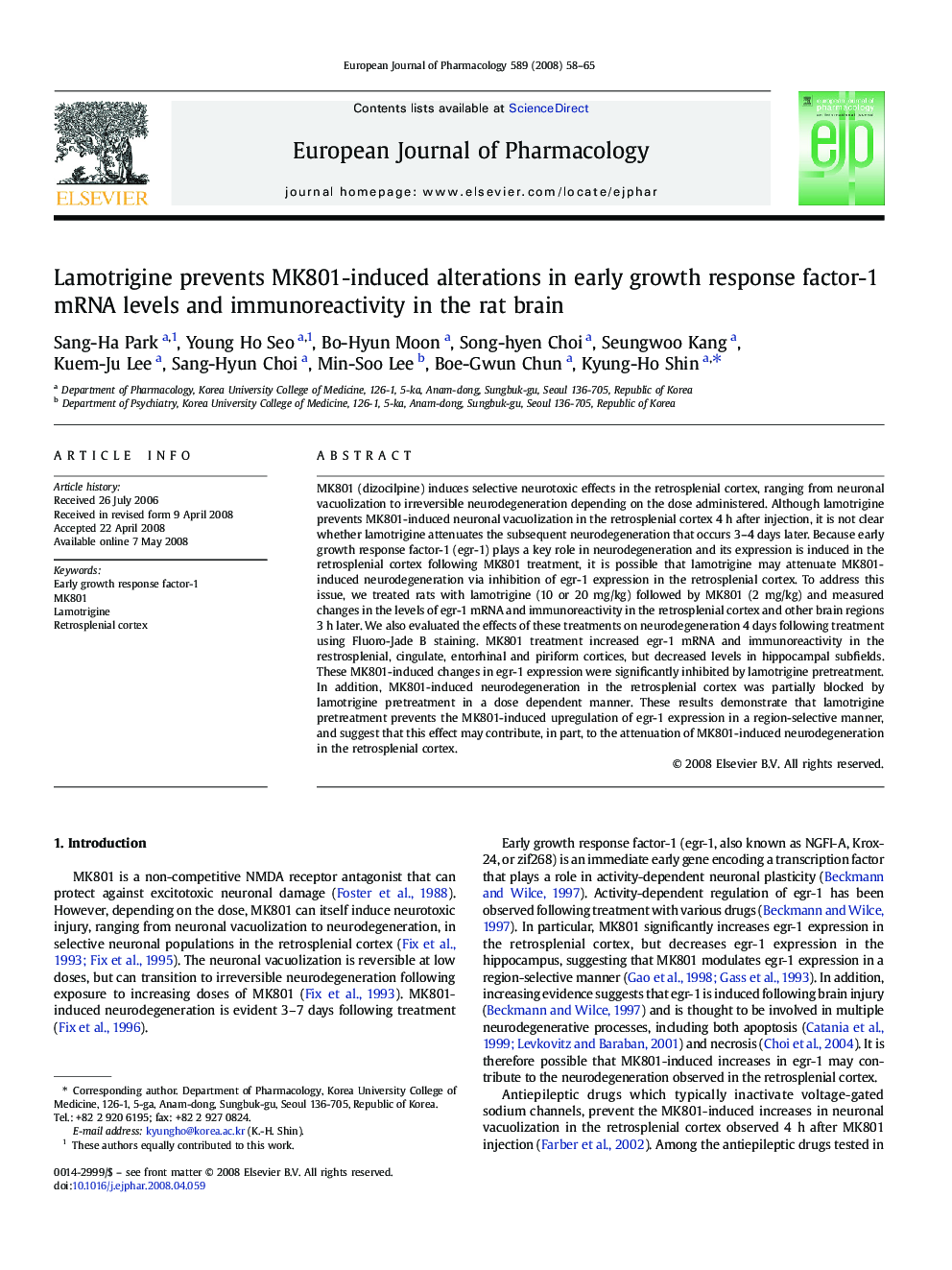| Article ID | Journal | Published Year | Pages | File Type |
|---|---|---|---|---|
| 2535091 | European Journal of Pharmacology | 2008 | 8 Pages |
MK801 (dizocilpine) induces selective neurotoxic effects in the retrosplenial cortex, ranging from neuronal vacuolization to irreversible neurodegeneration depending on the dose administered. Although lamotrigine prevents MK801-induced neuronal vacuolization in the retrosplenial cortex 4 h after injection, it is not clear whether lamotrigine attenuates the subsequent neurodegeneration that occurs 3–4 days later. Because early growth response factor-1 (egr-1) plays a key role in neurodegeneration and its expression is induced in the retrosplenial cortex following MK801 treatment, it is possible that lamotrigine may attenuate MK801-induced neurodegeneration via inhibition of egr-1 expression in the retrosplenial cortex. To address this issue, we treated rats with lamotrigine (10 or 20 mg/kg) followed by MK801 (2 mg/kg) and measured changes in the levels of egr-1 mRNA and immunoreactivity in the retrosplenial cortex and other brain regions 3 h later. We also evaluated the effects of these treatments on neurodegeneration 4 days following treatment using Fluoro-Jade B staining. MK801 treatment increased egr-1 mRNA and immunoreactivity in the restrosplenial, cingulate, entorhinal and piriform cortices, but decreased levels in hippocampal subfields. These MK801-induced changes in egr-1 expression were significantly inhibited by lamotrigine pretreatment. In addition, MK801-induced neurodegeneration in the retrosplenial cortex was partially blocked by lamotrigine pretreatment in a dose dependent manner. These results demonstrate that lamotrigine pretreatment prevents the MK801-induced upregulation of egr-1 expression in a region-selective manner, and suggest that this effect may contribute, in part, to the attenuation of MK801-induced neurodegeneration in the retrosplenial cortex.
